
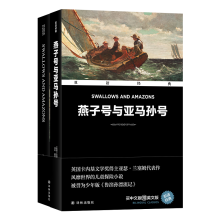
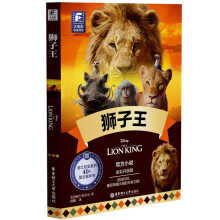
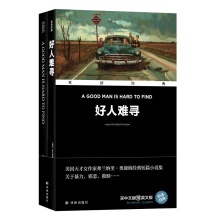

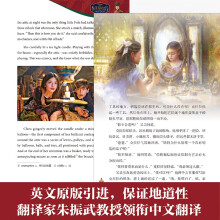
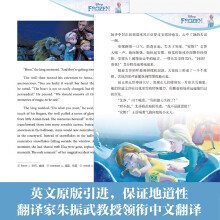


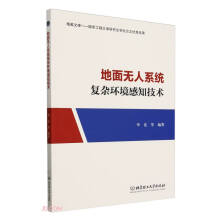
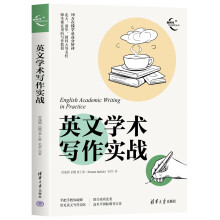
教育部推荐的成长励志经典
让千百万人重获信心与希望之书
被誉为“世界文学史上无与伦比的杰作”
讲述一段没有光明、没有声音的传奇人生
英文精装版本,适合收藏
Three Days to See,中文译名《假如给我三天光明》,属“壹力文库·百灵鸟英文经典”系列丛书。海伦·凯勒用一个身残志坚的盲聋人的视角来记述认知中的世界,透过“三天光明”的情景设定,描述自己对丰富多彩的生活活动的体会以及对人生的多重感悟。同时,在本书中,海伦还完整地描述了自己富有传奇色彩的一生,对自己的求学生活以及个人成长经历进行了详尽的介绍,无不浸润着成长的喜悦和汗水。海伦﹒凯勒用她生动细腻的笔触、优美的文辞,唤醒了每个人对生命的珍惜和敬畏。
It is with a kind of fear that I begin to write the history of my life. I have, as it were, a superstitious hesitation in lifting the veil that clings about my childhood like a golden mist. The task of writing an autobiography is a difficult one. When I try to classify my earliest impressions, I find that fact and fancy look alike across the years that link the past with the present. The woman paints the child’s experiences in her own fantasy. A few impressions stand out vividly from the first years of my life; but “the shadows of the prison-house are on the rest.” Besides, many of the joys and sorrows of childhood have lost their poignancy; and many incidents of vital importance in my early education have been forgotten in the excitement of great discoveries. In order, therefore, not to be tedious I shall try to present in a series of sketches only the episodes that seem to me to be the most interesting and important.
I was born on June 27, 1880, in Tuscumbia, a little town of northern Alabama.
The family on my father’s side is descended from Caspar Keller, a native of Switzerland, who settled in Maryland. One of my Swiss ancestors was the first teacher of the deaf in Zurich and wrote a book on the subject of their education—rather a singular coincidence; though it is true that there is no king who has not had a slave among his ancestors, and no slave who has not had a king among his.
My grandfather, Caspar Keller’s son, “entered” large tracts of land in Alabama and finally settled there. I have been told that once a year he went from Tuscumbia to Philadelphia on horseback to purchase supplies for the plantation, and my aunt has in her possession many of the letters to his family, which give charming and vivid accounts of these trips.
My Grandmother Keller was a daughter of one of Lafayette’s aides, Alexander Moore, and granddaughter of Alexander Spotswood, an early Colonial Governor of Virginia. She was also second cousin to Robert E. Lee.
My father, Arthur H. Keller, was a captain in the Confederate Army, and my mother, Kate Adams, was his second wife and many years younger. Her grandfather, Benjamin Adams, married Susanna E. Goodhue, and lived in Newbury, Massachusetts, for many years. Their son, Charles Adams, was born in Newburyport, Massachusetts, and moved to Helena, Arkansas. When the Civil War broke out, he fought on the side of the South and became a brigadier-general. He married Lucy Helen Everett, who belonged to the same family of Everetts as Edward Everett and Dr. Edward Everett Hale. After the war was over, the family moved to Memphis, Tennessee.
I lived, up to the time of the illness that deprived me of my sight and hearing, in a tiny house consisting of a large square room and a small one, in which the servant slept. It is a custom in the South to build a small house near the homestead as an annex to be used on occasion. Such a house my father built after the Civil War, and when he married my mother they went to live in it. It was completely covered with vines, climbing roses and honeysuckles. From the garden it looked like an arbour. The little porch was hidden from view by a screen of yellow roses and Southern smilax. It was the favourite haunt of hummingbirds and bees.
Part I The Story of My Life 1
Chapter 1 3
Chapter 2 8
Chapter 3 15
Chapter 4 18
Chapter 5 22
Chapter 6 25
Chapter 7 29
Chapter 8 35
Chapter 9 37
Chapter 10 41
Chapter 11 44
Chapter 12 49
Chapter 13 52
Chapter 14 57
Chapter 15 65
Chapter 16 69
Chapter 17 71
Chapter 18 74
Chapter 19 80
Chapter 20 85
Chapter 21 93
Chapter 22 105
Chapter 23 116
Part II Three Days to See 125
The First Day 131
The Second Day 134
The Third Day 138
温馨提示:请使用长沙图书馆的读者帐号和密码进行登录